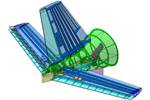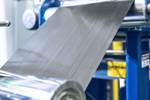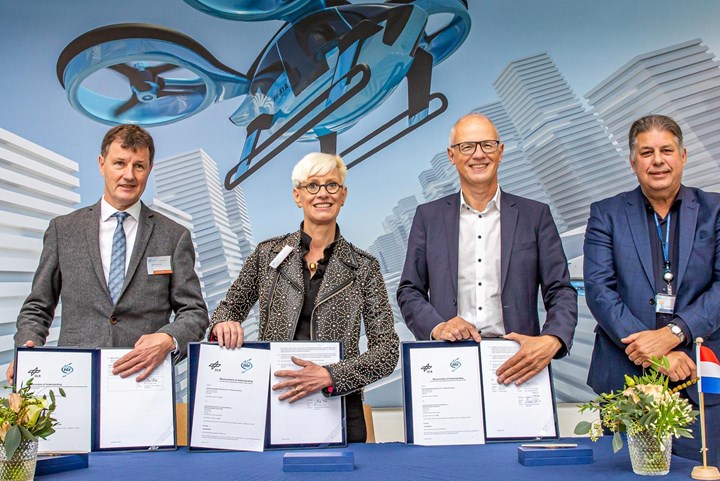DLR, NLR extend cooperation in aerospace, sustainability
Building on a longstanding, 50-year partnership, both executive boards are stepping up their game regarding aeronautics, sustainability, climate-neutral aviation, uncrewed flight.
In October 2022, the executive boards of the German Aerospace Center (DLR, Cologne, Germany) and Royal NLR – Netherlands Aerospace Centre (Amsterdam, Netherlands) met for a joint management conference in Marknesse, Netherlands where the two partners extended their current 50-year cooperation, declaring their intention to further deepen future collaboration. Three Memoranda of Understanding (MOU) were signed on the topics of unmanned aerial systems (UAS), lifecycle engineering and the circular economy and electric flight.
“These three initiatives, in addition to strong cooperation in the areas of flight testing and defense, will take our efforts to the next level,” chair of the DLR executive board, Anke Kaysser-Pyzalla, and chief executive officer (CEO) of NLR, Michel Peters, said in a joint statement. “Together, we are determined to make progress on many research topics that are necessary to realize a more sustainable and resilient society. Decades of fruitful and lasting cooperation between DLR and NLR have produced joint initiatives that have shaped European and global aviation, such as the joint Dutch-German Wind Tunnels (DNW) and the establishment of the European Air Traffic Management research alliance, AT-One. The synergy afforded by our shared office in Brussels, and other extensive bilateral initiatives, enhances the impact of these and other joint activities.”
Specifically in the field of UAS, NLR and DLR are looking to expand the cross-border cooperation of each other’s test centers in Marknesse and Cochstedt, where technical equipment will be adapted for mutual use. In addition, under the heading “Lifecycle Engineering and the Circular Economy” (LCE), the partners are focusing on joint research efforts to make the air transport system more sustainable. As part of the research collaboration, the entire development and service life of products, including recycling at the end of the life cycle, will be considered and new solutions developed. And under the title “Perfect e-flight,” joint developments are planned in the field of electric flight, with partners focusing on the aspects of hydrogen tanks and ground infrastructure as well as fuel cell propulsion. One of the aims is to conduct test flights between NLR and DLR sites.
Related Content
-
Plant tour: Arris Composites, Berkeley, Calif., U.S.
The creator of Additive Molding is leveraging automation and thermoplastics to provide high-volume, high-quality, sustainable composites manufacturing services.
-
Microwave heating for more sustainable carbon fiber
Skeptics say it won’t work — Osaka-based Microwave Chemical Co. says it already has — and continues to advance its simulation-based technology to slash energy use and emissions in manufacturing.
-
Watch: A practical view of sustainability in composites product development
Markus Beer of Forward Engineering addresses definitions of sustainability, how to approach sustainability goals, the role of life cycle analysis (LCA) and social, environmental and governmental driving forces. Watch his “CW Tech Days: Sustainability” presentation.














